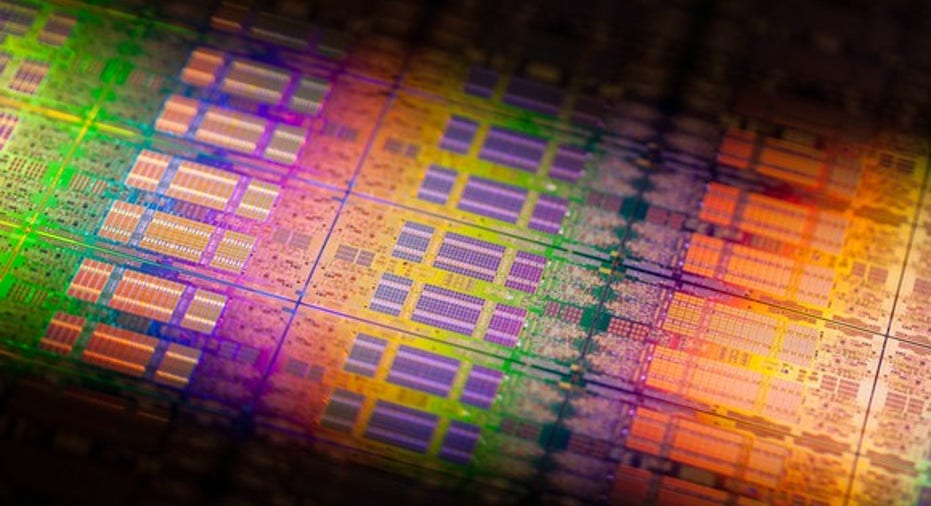3 Smart Moves by Intel Corporation's Management

I have often been critical of microprocessor giant Intel's (NASDAQ: INTC) execution in many areas, ranging from its ill-fated efforts to build mobile applications processors to its recent stumbles in chip manufacturing technology.
Image source: Intel.
Nevertheless, there are some moves that Intel's current management has made over the last several years that I think were quite sensible. Here are three.
Picking up Altera
In mid-2015, Intel announced that it would be acquiring programmable logic specialist Altera for $16.7 billion. Intel's rationale for this buy was based on two key theses.
The first is that Intel could strengthen Altera's core programmable logic chip business by building future Altera chips using Intel's chip manufacturing technology. This, Intel argued in an investor presentation, "will increase the competitiveness of Altera's existing products."
The second is that Intel aims to integrate Altera's FPGA technology with its processors aimed at both the server market as well as the Internet of Things market.
Intel said in an investor presentation that it thinks that "up to 1/3 of cloud service provider nodes" could use FPGAs. Additionally, the company said that in the Internet of Things market, its processors integrated with FPGAs could open a roughly $11 billion "incremental [serviceable addressable market] by 2020 as integrated FPGAs become cost competitive with [application specific integrated circuits] & [application specific standard products]."
It remains to be seen how well Intel can take advantage of the Altera assets (there is significant execution risk here given Intel's poor track record with large acquisitions), but conceptually the acquisition is an interesting one.
Diversifying beyond processors in the data center
Intel's data center group (DCG) is arguably the company's most important business over the long term. It is large, very profitable, and has good long-term growth prospects.
Although Intel is a primarily a processor specialist, the company has worked to try to build out a portfolio of products aimed at data center customers that goes beyond processors. This is smart for a couple of reasons.
Firstly, these non-processor products simply bring in a significant amount of revenue. Year-to-date, Intel's non-processor data center products have pulled in $979 million in revenue, meaning that the company rakes in more than $1 billion in revenue on an annualized basis from such products.
Additionally, sales of such products are growing at a faster rate than processor products, which has helped accelerate the growth rate of DCG. Year-to-date, the processor portion of DCG is up about 6.9%; the non-processor portion of DCG is up nearly 18% and has the potential to accelerate going forward.
Succeeding in the Internet of Things
It's hard for a company of Intel's size and scale to find meaningful new growth opportunities, but the company's continued investments in its Internet of Things group seem to be yielding results.
Today, the company's Internet of Things business generates less than $3 billion in annual revenue, but the segment has been on a growth path for several years. It grew by 19% in 2014, 7.3% in 2015, and is up more than 14% year to date.
With new opportunities emerging in this space, such as self-driving cars, it's likely that Intel's Internet of Things group will continue to be an interesting growth opportunity for the company in the years ahead.
10 stocks we like better than Intel When investing geniuses David and Tom Gardner have a stock tip, it can pay to listen. After all, the newsletter they have run for over a decade, Motley Fool Stock Advisor, has tripled the market.*
David and Tom just revealed what they believe are the 10 best stocks for investors to buy right now... and Intel wasn't one of them! That's right -- they think these 10 stocks are even better buys.
Click here to learn about these picks!
*Stock Advisor returns as of Nov. 7, 2016
Ashraf Eassa owns shares of Intel. The Motley Fool recommends Intel. The Motley Fool has a disclosure policy.



















